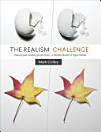Contemporary Art in the Conflicts of Globalization
About this ebook
Examining contemporary art’s connections to and breaks from modern art in the last century, the study offers an innovative account of its artists’ formation during the era of decolonization after 1945 and the Cold War. Through a series of complementary analytic perspectives, the book considers the cultural politics of the global art world, its patterns of inclusion and exclusion, and charts contemporary art’s relations to feminist, anti-racist, and climate change activisms (among others) as these have both mutated and interconnected since the 1990s. More than 50 illustrations are included and are the basis for the book’s empirical and theoretically informed study.
The book is designed for both students and general readers and will be of great value for all who see contemporary art and global cultures as a contested ground of creativity and social significance, within which transformative progressive change may be achieved for the whole world and all its peoples.
About the author
Jonathan Harris is Professor of Art History at the University for the Creative Arts in Canterbury, UK. He is the author/editor of 25 books, including The New Art History: A Critical Introduction (Routledge, 2001), Art History: The Key Concepts (Routledge, 2006), The Utopian Globalists: Artists of Worldwide Revolution 1919–2009 (2013), Terrorism and the Arts: Practices and Critiques in Contemporary Cultural Production (Routledge, 2021), and, with Menene Gras and Bashir Makhoul, Contemporary Art in Global Asia (Routledge, 2023). Harris is a specialist in modern and contemporary art.







